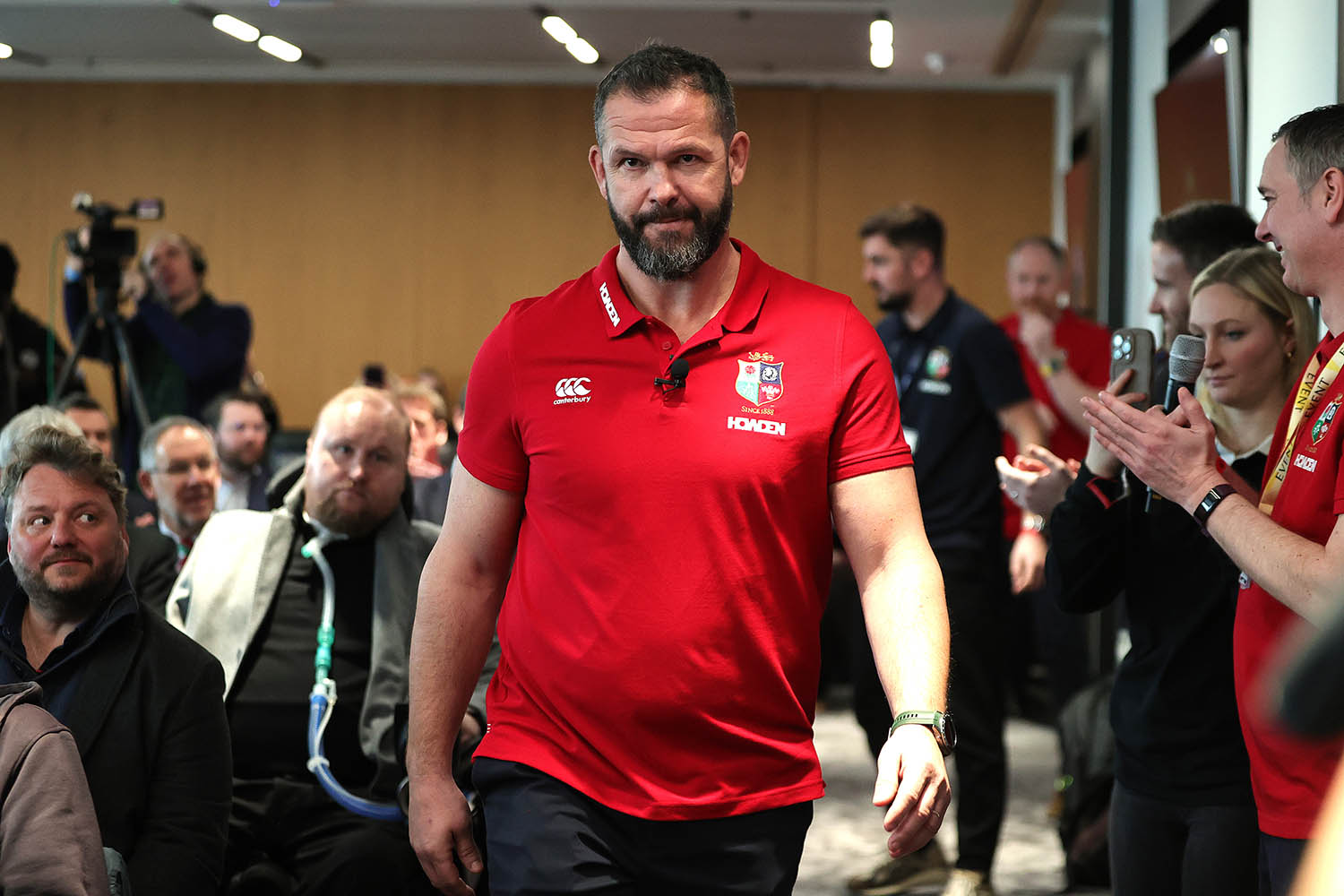It was famously once described as a cross between a prep school outing and a crusade. Now it is a cash machine. A Lions tour is the third biggest brand in rugby and everything about it screams money.
Blue-chip sponsors scramble over each other to be associated. Big media outfits battle to buy broadcast rights. Host nations rub their collective hands in anticipation of the boost to their economy. Fans hoover up eye-wateringly expensive supporters’ packages. Players look forward to earning six-figure sums.
But for most, if not all, of the 37 men who will be named by Andy Farrell on Thursday in his squad the short-term cash bonanza is secondary to peer recognition and long-term reputation. And, as far as the shortening of their careers and the long-term impact on the nations they represent, it is collateral damage.
Since rugby union went professional 30 years ago there have been seven Lions tours and seven World Cups. Of the teams who provide Lions players, only England have been global champions and have three times been beaten finalists. Wales have made the semi-finals twice, Scotland once and Ireland never. By contrast, South Africa have twice gone on to win a World Cup after hosting the Lions, while Australia and New Zealand have achieved that feat once. All three are multiple world champions.
To the list of rival beneficiaries of Lions tours, add France. In the seven years immediately preceding a Lions tour the Six Nations has been won six times by a home union and once by France. In the seven seasons immediately following, France has won five titles.
At a time, too, when the focus on player welfare is parroted in all corners of the sport, a Lions tour presents an extra conundrum. Accepted sports science recommends that top players should not contest more than 30 matches per season. It is a struggle to keep to that limit in a normal season. Add on a Lions tour, for which players are only now being selected, and it is a rule that, necessarily, can only be honoured in the breach.
And, even if they restrict themselves to the recommended number of matches, the players are unlikely to be at their physical best. It is difficult enough in a normal season. Club and national coaches have competing agendas, with the former working towards an end-of-season peak when the silverware is decided and the latter gearing first towards the autumn internationals and then, three months later, the Six Nations. To hit the heights again for Tests against a southern hemisphere superpower is well nigh impossible.
And yet, apart from the national coaches, who would have it any other way? A Lions tour has a mystique and a magic unparalleled in any sport. In the early days it was about cementing the bonds of Empire, and the Lions were missionaries sharing the values of muscular Christianity with their colonial cousins. More recently it was about participating in what was once described as “the global freemasonry of rugby”.
The Lions and their fans were feted on their months-long treks around the further outposts of Australia, New Zealand and South Africa in part because they provided a link to what was still, to many, the “mother country”. If they could be defeated, as they often were, it became a validation of the strength, manliness and character of the host nation.
For the Lions players, though, it represents a career pinnacle. To be selected as the best in your position in the British Isles, is a badge you wear with pride for ever. To share a tour with fellow professionals from different countries, learn from different coaches and, after only a few short weeks, to compete against the world’s top teams is a challenge like no other.
Newsletters
Choose the newsletters you want to receive
View more
For information about how The Observer protects your data, read our Privacy Policy
And it is impossible to take selection for granted, just as it is impossible to be immune to the cascade of “Lions watch” articles that have become an inevitable staple of the media coverage of rugby matches this and every pre-tour season. Players will only know they are getting on the plane to Australia when Andy Farrell says so.
The same qualification applies to the team for the first Test on the 19 July in Brisbane.
Lions key dates
Thurs, 8 May Squad announced at The O2
Fri, 20 June v Argentina, Dublin
Sat, 28 June v Western Force, Perth
Wed, 2 July v Queensland Reds, Brisbane
Sat, 5 July v NSW Waratahs, Sydney
Wed, 9 July v ACT Brumbies, Canberra
Sat, 12 July v Invit AU & NZ, Adelaide
Sat, 19 July v Australia, 1st Test, Brisbane
Tues, 22 July v Melbourne Rebels, Melbourne
Sat, 26 July v Australia, 2nd Test, Melbourne
Sat, 2 August v Australia, 3rd Test, Sydney
Photograph by David Rogers/Getty Images
This article was amended on 10 May 2025. An earlier version stated incorrectly that Scotland had never reached the semi-finals of the Rugby World Cup. Scotland played England at Murrayfield in 1991 and lost 9-6.

